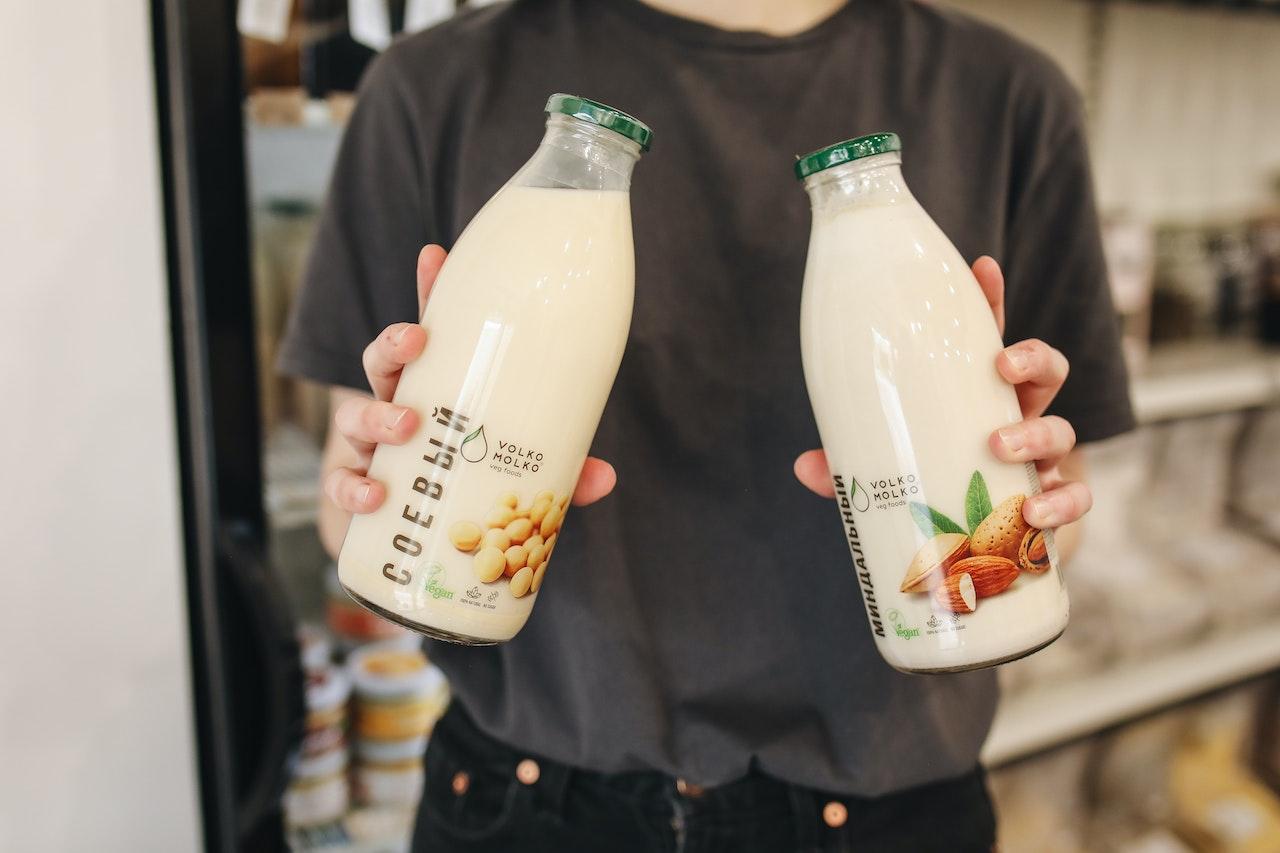The popularity of plant-based milk alternatives has been unbroken for many years
It’s not surprising that among dairy alternatives, cow’s milk is the least sustainable in terms of its associated carbon dioxide emissions and water consumption. However, the sustainability of plant-based milks also varies significantly, as well as noticeable differences in their price ranges.

The popularity of plant-based dairy alternatives has remained strong for many years, with various reasons behind this trend. It’s worth being aware of these factors before saying goodbye to cow’s milk (or reconsidering it). Besides the prices of individual products, their impact on the environment is an important aspect to consider.
Carbon dioxide emissions and water consumption are areas where cow’s milk performs poorly compared to plant-based alternatives. For instance, almond milk, despite being a plant-based option, only accounts for 60% of the water usage of cow’s milk. On the other hand, rice milk, while being the least environmentally friendly in terms of carbon dioxide emissions, only contributes 40% of the environmental impact produced by cow’s milk. Soy and oat-based alternatives, on the other hand, require even less water for production. The ecological footprint of soy and oat milk is minimal, though a significant part of their negative environmental impact comes from packaging and transportation. These beverages are often produced and transported from distant countries, and their packaging doesn’t typically indicate the origin of the soy or oats used. However, it’s worth noting that many of the alarming rumors surrounding plant-based “milks” are unfounded; for example, soy production does not significantly contribute to the destruction of the Amazon rainforest.
Apart from the environmental aspects, the differences in prices cannot be overlooked. Currently, the price of 1 liter of 2.8% UHT cow’s milk usually falls within the range of 250-500 HUF. However, the price of plant-based alternatives tends to be higher, ranging from 500 to 1200 HUF. We examined various online platforms of discount stores to find out the absolute lowest price at which we can obtain different types of plant-based milk alternatives. It turns out that there are often significant differences in the prices of these plant-based products relative to each other. Meanwhile, cow’s milk is indeed the most affordable option, but (likely due to varying degrees of inflation impact) the difference in price between various milk alternatives is not necessarily massive.
Related news
Price reduction: Milk under 200 HUF at PENNY
🎧 Hallgasd a cikket: Lejátszás Szünet Folytatás Leállítás Nyelv: Auto…
Read more >Modern ventilation could increase milk production, study finds
🎧 Hallgasd a cikket: Lejátszás Szünet Folytatás Leállítás Nyelv: Auto…
Read more >Related news
ZEW: Economic expectations worsened in Germany and the euro area in February
🎧 Hallgasd a cikket: Lejátszás Szünet Folytatás Leállítás Nyelv: Auto…
Read more >0.5 percent of Hungarian GDP is related to Nestlé’s domestic operations
🎧 Hallgasd a cikket: Lejátszás Szünet Folytatás Leállítás Nyelv: Auto…
Read more >Ham seasons: the bad, the better and the good (?)
🎧 Hallgasd a cikket: Lejátszás Szünet Folytatás Leállítás Nyelv: Auto…
Read more >








